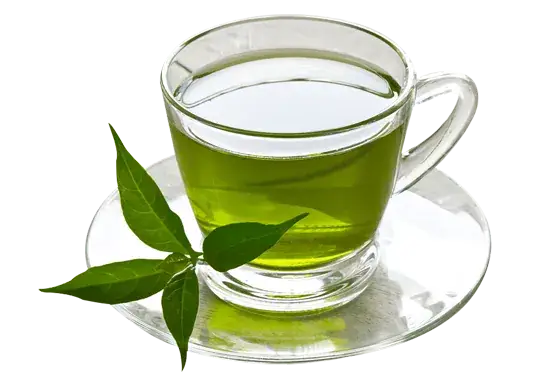Unveiling the Truth About This Popular Beverage
What Makes Green Tea Special?
Green tea comes from the leaves of the Camellia sinensis plant and is minimally processed compared to black tea. This minimal processing helps retain higher amounts of antioxidants, specifically catechins, which are believed to contribute to its health benefits. Here’s a breakdown of why green tea is considered beneficial:
- Rich in Antioxidants: Green tea is packed with catechins like epigallocatechin gallate (EGCG), which can help combat oxidative stress and neutralize harmful free radicals in the body.
- Boosts Metabolism and Aids Weight Loss : Green tea is often included in weight loss regimens due to its potential to boost metabolism. EGCG and caffeine in green tea are believed to enhance fat oxidation and increase calorie expenditure, making it a popular choice for those looking to shed a few pounds.
- Heart Health: Regular consumption of green tea has been linked to reduced cholesterol levels and improved heart health. Its antioxidants help in reducing the risk of cardiovascular diseases.
- Supports Brain Health: The caffeine and L-theanine found in green tea can improve brain function, focus, and memory. The combination of these compounds may offer a calming effect while enhancing cognitive performance.
- Aids Digestion: Green tea can help soothe the digestive system and improve gut health, potentially easing symptoms of bloating and indigestion.
- Improves Dental Health : Green tea’s natural fluoride content and antibacterial properties can help reduce the growth of harmful bacteria in the mouth, improving overall oral health and reducing bad breath.
Green Tea and Indian Wellness: The Connection
Integrating green tea into your diet might be an appealing option given the country’s rich tradition of herbal remedies and emphasis on natural health solutions. However, while green tea offers several benefits, it’s important to consider how it aligns with Indian dietary practices and lifestyle:
- Complementary to Indian Spices: Green tea can be paired with traditional Indian spices like ginger and turmeric. Ginger can add a warming quality, while turmeric contributes its own set of health benefits, including anti-inflammatory properties.
- Timing Matters: In the Indian context, the timing of green tea consumption can impact its benefits. Drinking it on an empty stomach might enhance its effects on metabolism, but it’s also wise to avoid drinking it immediately after meals to prevent interference with iron absorption.
- Balanced Approach: While green tea has health benefits, it’s not a miracle cure. It should be part of a balanced diet and lifestyle. Traditional Indian foods like dal, vegetables, and whole grains should still form the cornerstone of your diet.
Debunking Common Myths
Despite its benefits, green tea is surrounded by several myths. Let’s set the record straight:
- Myth: Green Tea Can Cure Diseases: While green tea has health benefits, it’s not a cure-all. It can support overall health but should not replace medical treatments or a balanced diet.
- Myth: Drinking Excessive Green Tea Is Better: Moderation is key. Consuming too much green tea can lead to issues like stomach irritation or iron absorption problems. Aim for 2-3 cups a day.
- Myth: All Green Teas Are the Same: Quality matters. Opt for high-quality green tea to get the most health benefits. Avoid sugary or artificially flavored green teas, which can negate the health benefits.
Conclusion: Is Green Tea Worth It?
Green tea can be a valuable addition to a health-conscious lifestyle. Its antioxidant properties, metabolic benefits, and support for overall wellness make it a beneficial drink. However, it should be consumed mindfully and in conjunction with a well-rounded diet and healthy lifestyle practices. Remember, no single beverage or food item can guarantee health, but green tea can certainly complement a holistic approach to wellness.





Finding a reliable link to W88 can be a hassle. linhvaow88 appears to be a pretty straightforward solution. Hopefully, keeps me connected! This takes you to linhvaow88.
Just downloaded the luckywin777app. The interface is smooth, and they have a good variety of games. Hopefully, the name is true. Wish me luck! You can try it yourself here luckywin777app